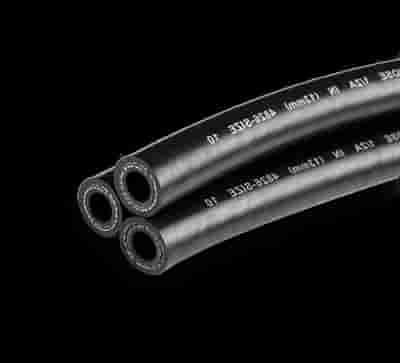Understanding the Specifications for Diesel Fuel Lines in Automotive Applications
Dec . 25, 2024 06:44 Back to list
Understanding the Specifications for Diesel Fuel Lines in Automotive Applications
Understanding Diesel Rated Fuel Line Essential Insights for Efficient Fuel Systems
In today's world, the reliance on diesel fuel remains significant, particularly in the transportation and heavy machinery sectors. The efficiency and effectiveness of diesel-powered engines hinge heavily on the quality and design of the fuel delivery systems. Among the critical components of these systems is the diesel rated fuel line, a feature that warrants careful consideration to ensure optimum performance.
What is a Diesel Rated Fuel Line?
A diesel rated fuel line is specifically designed to transport diesel fuel from the tank to the engine or other fuel-utilizing equipment. These lines are crafted to withstand the unique demands posed by diesel fuel, including its chemical properties and the pressure levels involved during operation. Unlike standard fuel lines that may be used for gasoline, diesel rated lines offer enhanced durability and resistance to wear, making them essential for any application involving diesel engines.
Key Characteristics of Diesel Rated Fuel Lines
1. Material Composition The materials used in manufacturing diesel rated fuel lines are crucial. They are typically made of rubber or reinforced thermoplastic materials that provide resilience against the corrosive properties of diesel. Additionally, they are often designed to resist cracking and deformation under extreme temperatures and pressures, ensuring longevity and reliability.
2. Pressure Tolerance Diesel fuel systems operate under varying pressure conditions. Diesel rated fuel lines are engineered to handle these pressures without failure. They are tested to meet or exceed industry standards, ensuring that they can withstand the rigorous operational demands found in commercial transportation and heavy machinery.
3. Compatibility It's essential that diesel rated fuel lines are compatible with various types of diesel fuel, including biodiesel mixtures. As the market shifts towards more sustainable fuels, the materials used for diesel lines must not only accommodate traditional diesel but also newer formulations that may have different chemical compositions.
4. Diameter and Length Specifications The diameter and length of the fuel line are also critical at optimizing fuel flow. A properly sized fuel line can minimize pressure loss and maximize the efficiency of the fuel delivery system. Engineers must carefully calculate the required dimensions based on engine specifications and anticipated fuel flow rates.
diesel rated fuel line

Importance of Quality in Diesel Fuel Lines
Using high-quality diesel rated fuel lines is paramount for several reasons. Firstly, substandard lines can lead to fuel leaks, posing not just a hazard of environmental contamination, but also risks of fire and explosion. Secondly, a fuel line that cannot withstand the pressures or chemical interactions associated with diesel fuel can result in performance issues and increased maintenance costs. With diesel engines being a significant investment, maintaining a reliable and functional fuel delivery system is essential for long-term operational efficiency.
Maintenance Best Practices
To ensure the longevity and reliable performance of diesel rated fuel lines, regular maintenance practices should be implemented
- Visual Inspections Regularly inspect fuel lines for signs of wear, leaks, or damage. Early detection can prevent catastrophic failures. - Cleanliness Ensure that all components of the fuel system, including the lines, are free from contaminants. Dirt and debris can lead to blockages and inefficiencies in fuel delivery.
- Replacement Follow manufacturer recommendations for replacement intervals for fuel lines. Even high-quality lines have a lifespan, and timely replacement can save significant costs and downtime.
Conclusion
In conclusion, the diesel rated fuel line plays a crucial role in the functionality of diesel engines. Understanding its properties, maintaining it diligently, and recognizing the importance of using high-quality components can lead to enhanced performance, safety, and sustainability in diesel fuel systems. Whether in transport, construction, or agriculture, ensuring that diesel rated fuel lines meet the strict demands of modern operations will secure reliability and efficiency for years to come. As industries continue to evolve, adapting our understanding of diesel fuel systems will remain essential for success.
